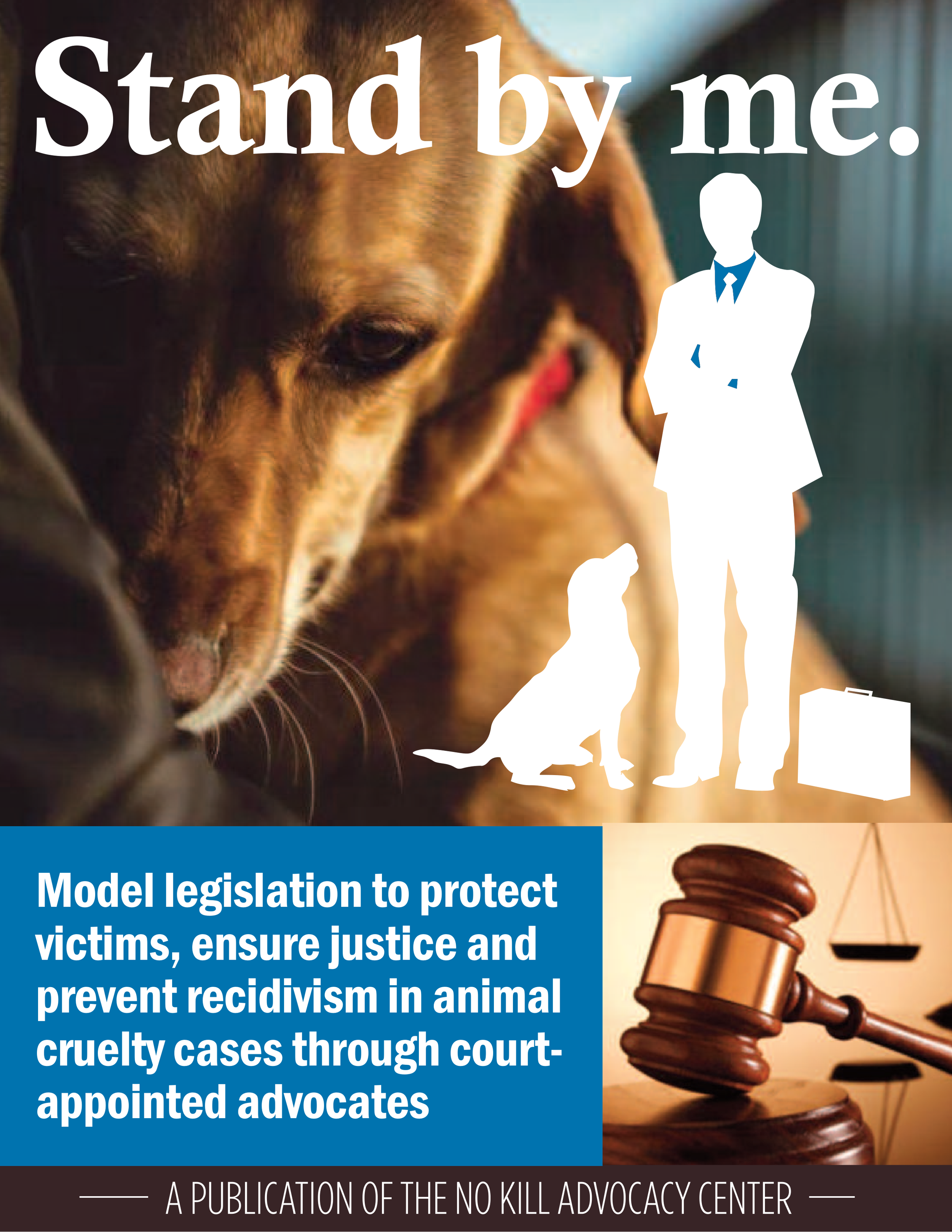Stand by Me
Click on the image to read and download the guide.
In many states, animal cruelty cases are rarely prosecuted and when they are, the punishment is weak. To prevent this, courts should appoint attorneys as advocates to represent the best interests of animals. In addition to the state prosecutor, the perpetrator’s defense attorney, and the enforcement agency (animal control or police officer),
The animal advocates are an official party to the case. They can do investigative work prosecutors often don’t have time for, such as interviewing veterinarians and other witnesses. They also make arguments, write briefs and make recommendations to the judge.
These laws work. Before Connecticut passed it, for example, 80% of cruelty cases were dismissed or not prosecuted. The rate of actual conviction was even worse. Of the 3,723 reported cruelty cases before passage, only 19 resulted in a conviction — ½ of 1%. That means 99.5% of people charged with cruelty faced little to no legal consequences.
Not anymore. “Both advocates and activists report stiffer penalties since the law’s enactment.” It has also led to “voluntary forfeiture of animals, restitution for rescue organizations, agreements to avoid future contact with animals, and agreements to seek counseling.”
In addition to laws banning people from having custody of animals following a cruelty conviction, we need similar laws in other states. And we need it not just in cruelty cases but in divorce and other disputes where an animal’s best interests might conflict with the people they are connected to.
Did our guide help you?

